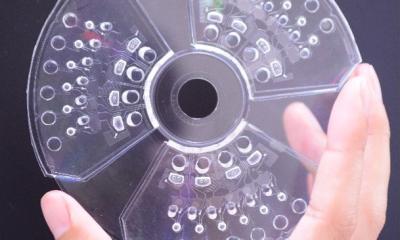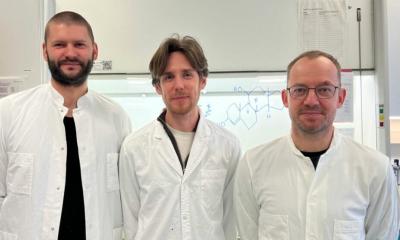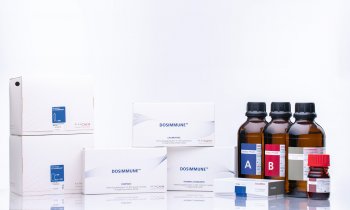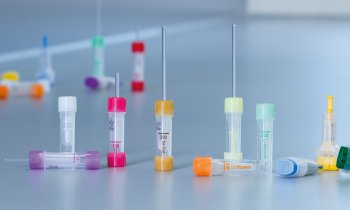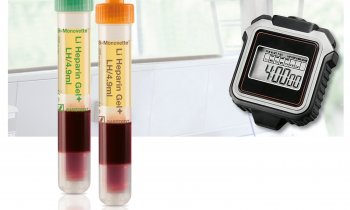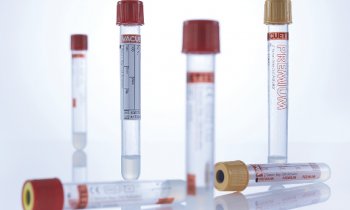Switzerland
Clinical chemistry is broad ranging
The field is neither tedious nor monotonous; it’s fascinating every day, Professor Katharina Rentsch emphasises, when explaining the need to attract students to this often overlooked but intreguing and varied discipline.
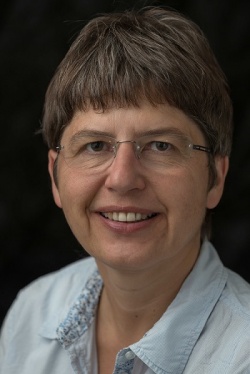
The discipline of clinical chemistry in Switzerland comprises the biochemical and immunological analyses of substrates, hormones, metabolites, proteins, drugs and drugs of abuse in blood and other body fluids, mostly using highly automated instruments. In bigger laboratories more sophisticated chemical techniques are also used, such as atomic absorption spectroscopy to quantify heavy metals in blood, urine and tissues, chromatography coupled to mass spectrometry e.g. to quantify drugs, and electrophoresis to separate proteins. Unlike other countries, coagulation tests, blood cell count and blood smears, are not part of clinical chemistry.
A Masters degree in medical and pharmaceutical sciences, biology, biochemistry, chemistry or a comparable natural science is needed to become a clinical chemist. The Swiss Academy of Medical Sciences issues the curriculum to specialise in laboratory medicine. The Swiss Association of Medical Laboratories, FAHM, represents the commercial labs that perform over 1,500 different analyses of blood, urine, stool or other patient samples, for doctors and hospitals, and it also organises education in clinical chemistry.
After passing an entrance exam that covers all disciplines of laboratory medicine (clinical chemistry, haematology, immunology, medical microbiology and human genetics) the course to qualify as a clinical chemist lasts four years, during which FAMH candidates work in a routine laboratory and attend several block courses in topics such as man management, quality management and change management etc. At least one of the four practical years must be spent in a public hospital laboratory. After the final oral examination, the clinical chemist can take full responsibility in a lab.
The Swiss Federal Office of Health regulates reimbursement for laboratory tests, including all clinical chemistry tests. One list of analyses is positive, containing all lab tests reimbursed by the health insurers linked to one price. Since autumn, there has been one exception to this general rule: point-of-care (POC) tests performed in doctors’ offices have higher prices than the same test performed in professional laboratories. The price of a lab test is a so-called technical activity. Therefore, lab directors usually don’t have any private income for performing medical activities, for example for patients with private insurance. This contrasts with German laboratories.
Due to these circumstances, and a common education, pharmacists and natural scientists have equal rights to bring lab tests to account. Each test has one or several suffixes, which indicate its laboratory medicine discipline. If a lab wants to be reimbursed for analytes that belong to different disciplines it needs a FAMH lab medicine specialist for each discipline.
Swiss Law
In 2012, Switzerland had 206 acute somatic hospitals and specialised clinics, according to H+, the organisation that represents Swiss hospitals. The Swiss health system is organised in a non-centralised manner and each of the cantons has its own health law and hospitals. The size of the 26 cantons varies considerably (~16,000 – 1,425,000 inhabitants) and consequently also hospital sizes vary substantially. Depending on that size, their laboratory has a few point-of-care instruments; small automated devices for clinical chemistry, immunology and haematology, or offers the full spectrum of analysis. Swiss law allows small hospital laboratories that perform only in-house lab tests to be headed by a technician with a superior education. A physician having passed a two-day-course in laboratory medicine can take over supervision of these labs.
As soon as samples from outside the hospital are analysed, a FAMH laboratory medicine specialist is needed, as already mentioned. There are also several private laboratories responsible for lab testing, mostly in smaller public or private hospitals. Private laboratories always need FAMH laboratory medicine specialists for each discipline performed in their premises.
Switzerland’s five big medical faculties are all linked to a university hospital with a clinical chemistry laboratory. Unfortunately, there are only three ordinary professors for clinical chemistry (Zurich and Geneva) or Biomedicine (Lausanne) appointed to the respective medical faculties. Basel and Berne university hospitals, and the Zurich’s Children’s University Hospital, have associate professors. Nevertheless, with their co-workers, they are heavily engaged in teaching medical and pharmaceutical or natural science students. In all university hospitals MD and/or PhD students perform lab work to gain a doctoral degree from the respective faculty.
Highly specialised medicine is offered in all university hospitals in different areas of expertise. Usually, different research groups of clinical colleagues carry out research on these fields and often also the clinical chemistry department has research activities in these topics, to allow specialised and unique progression in diagnosis and/or monitoring of therapy or disease progression/remission.
Ten years ago, the different disciplines in laboratory medicine were mostly separated in the big hospitals, but since then organisational units have been created or are in development. They usually consist at least of clinical chemistry, diagnostic haematology and clinical immunology. The clinical chemist is usually experienced in managing a very high number of patient samples, covering a wide diversity of analytical techniques. Therefore, in many hospitals, the clinical chemist has taken over the position of head of these organisational units and therefore is finally responsible for the organisation of most, if not all, of the laboratory tests performed in his hospital.
Young scientists
In Switzerland the number of young scientists studying clinical chemistry is small, perhaps because the profession is not publicly visible – adolescents are not usually aware that the profession exists and medical and natural science students rarely have contact with those from this profession. In Switzerland only pharmacists have mandatory courses in laboratory medicine, mostly given by a clinical chemist. To offer positions for a Master or PhD theses for all these university courses is therefore an absolute need, because this is the best chance to draw students into the laboratories.
In my opinion clinical chemistry is the most fascinating discipline of laboratory medicine. Many different analytical techniques are used for patients from all medical disciplines. The discipline is so broad that a young, active clinical chemist can choose a field of expertise. This might be on a more organisational level if he’s interested in automation processes, or lab organisation or, on a basic research level, focusing on a very specialised topic. The expertise of Swiss clinical chemistry researchers lies in biomarker research, cardiovascular research, metabolomics and toxicology. Besides being active in the Swiss Society of Clinical Chemistry, they are all very actively involved in national and international scientific societies.
Nevertheless, in daily routine we are all confronted with different aspects of lab work that demands a broad knowledge of medicine, besides experience in organising processes to optimise lab turn-around-time – also in situations where not all the instruments work properly.
Being the clinical chemist on duty in a big laboratory will soon confront me with topics concerning analytical techniques and their interferences, telephone calls from physicians asking for an interpretation of a result, coming from, for example, special endocrinology, therapeutic drug monitoring or protein analysis, and often usually at least one of the great many internal quality control results will be out of the accepted range. He, or she, will switch very rapidly between analytical details of the different assays, pathophysiological processes and management of challenging situations needing organisational experience.
This amplitude of topics prevents the clinical chemist job from becoming tedious and monotonous and makes it a fascinating task, every day.
PROFILE:
ETH Zürich promoted Dr. sc. nat Katharina Rentsch to professor in 2003. She currently heads the department of clinical chemistry and laboratory medicine at University Hospital Basel, Switzerland. From 2009 Prof. Rentsch was also President of the Swiss Society for Clinical Chemistry and Molecular Diagnostics (SSCC).
22.07.2015



